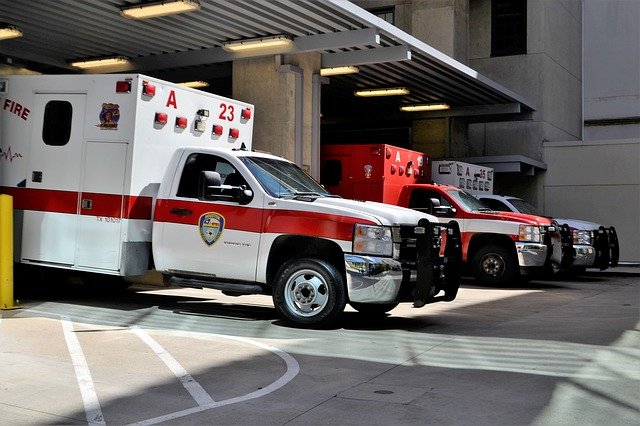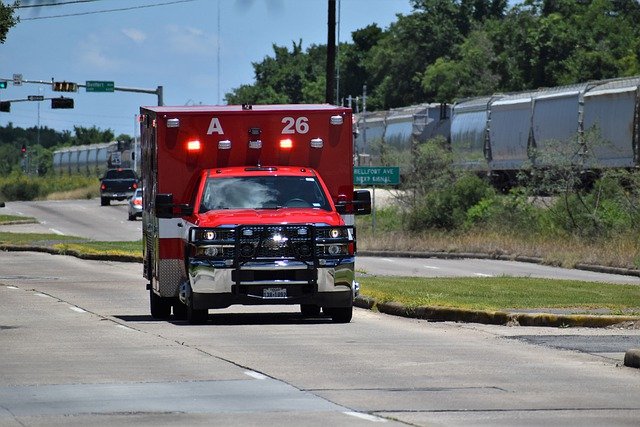Before applying to medical school, it is a good idea to have some kind of clinical experience. Not only does this look better on your application, but it also helps give you an idea of what a career in medicine looks like before you spend $200K + in education.
There are a lot of different things a premed student can do to gain clinical experience. In this post I will focus on emergency medical technicians (EMTs) and certified nursing assistants (CNAs). Both are very similar roles but can offer very different opportunities for different premed students.
Keep reading to find out if becoming an EMT or a CNA will be better for your med school application.
Differences Between An EMT And A CNA

As a lot of you are probably aware, most Emergency Medical Technicians, or EMTs, handle emergency situations and are part of the team which transports patients involved in some sort of accident to a medical facility. During this transportation, they must keep the patient stable so he or she can receive proper care.
EMTs must obtain their CPR certificate, pass a national registry of EMT examination, a state-administered examination, and undergo 100 or 1000 hours of accredited training depending on whether or not they are going for the EMT Basic or Intermediate. And then of course you can go through more schooling to become a paramedic.
Some states will have only an EMT-B (basic) and an EMT-P (paramedic), while others will have the EMT-B, EMT-I or A, and Paramedics.
You only need your GED or high school degree to become an EMT.
Certified Nursing Assistants, or CNAs, on the other hand, are responsible for primarily bedside care and taking patient’s basic vitals. They work under a registered nurse or physician and usually work in nursing homes, home healthcare services, and hospitals.
Nursing homes tend to be the most common workplace for a premed student due to the fact that nursing homes tend to hire CNAs with 0 years of experience while hospitals like to see a couple of years of experience.
CNAs must also get certified. They don’t require the CPR certificate but their training usually takes around 9 months and they must take a credentialing examination.
Like EMTs, you only need your GED or high school degree to become a CNA.
These are the basic differences between EMTs and CNAs. And I mean BASIC. There are a lot of exceptions. Keep reading to learn more and give you a better understanding of which job will be better for YOUR medical school application.
Yup, I emphasized YOUR because one position is not intrinsically better than the other. It all depends on your personality and situation.
Experience Depends On Location

Location is probably the most important factor when deciding whether you want to be an EMT or CNA. The location will dictate which job will provide you more experience relatable to being a doctor.
For example, if your goal is to work in the ER as an ER tech so that you can work closer to ER physicians and experience a wide array of patients, you will find that some hospitals employ EMTs and some employ CNAs. And some might not employ either!
Additionally, if your plan is to be an EMT working or volunteering with the fire department, some towns might employ EMTs while others will only use their firefighters for their EMS services. You may end up having to work with a private company driving nursing home patients back and forth.
Of course, working with nursing home patients can still be a great experience. But the point I’m trying to make is that you might have one expectation but the area you live in doesn’t meet this expectation.
My recommendation is to reach out to other premed students at your University who are working as either an EMT or CNA and see what kind of opportunities are available to them.
Patient Interaction
Both EMTs and CNAs can expect to gain a lot of patient interaction experience.
In general, CNAs tend to have more patient interaction opportunities. Like I mentioned earlier, most CNA’s first job will be working for a nursing home. What most students don’t know is that nursing homes can be a lot of work. This is mainly because senior citizen patients need a lot of care.
You can expect to be doing a ton of patient interaction. Like helping them walk, eat, get dressed, etc. Even if you move on to working at a larger hospital, you can expect to be interacting with patients quite a bit, just a larger range of demographics.
Patient interaction experience is something medical schools like to see. They want to know that you enjoy and are comfortable being around patients. Medical school administrators also want to see that you have a good bedside manner because you are part of the next generation of doctors who will be treating them!
Interaction With Physicians And Nurses
As an EMT you have the opportunity to interact with Physicians and Nurses. For example, EMTs may do hospital to hospital calls which involves interacting with hospital staff for transporting a patient.
Depending on your location, you may be able to get a job as an ER tech with some experience as an EMT or CNA. For the most part, ER techs are able to assist with procedures and help physicians out with all kinds of tasks. This kind of experience can be very exciting for a premed student!
Doctors understand what it is like to be in your shoes and most of the time they go out of their way to show you things. There are plenty of opportunities as an EMT or CNA to build professional relationships with physicians that could lead to a letter of recommendation.
What Do Medical Schools Prefer To See On Your Application, EMT Or CNA?

Medical schools are looking for students who demonstrate compassion for patients, an eagerness to learn, and the desire to serve the underserved.
Both EMTs and CNAs can demonstrate these qualities in different ways.
The key is to do something that you would enjoy.
You see, if you decide to become an EMT but then reality doesn’t meet your expectations and you end up complaining the whole time as you transfer non-critical patients from one location to another, you won’t be able to convey a compelling story to a medical school admissions team.
Conversely, if you become a CNA but all the grunt work wears you down, you end up with just another job that pads your resume.
Do your research and see what kind of opportunities there are for EMTs and CNAs in your area. Talk to other students you have done it and see what their workdays were like. After figuring out what you can do, pursue the option that will make you excited to go to work.
When you are happy where you are, you will learn more, be a better caregiver for your patients, and will have great stories to tell during your medical school interview.